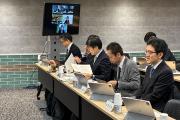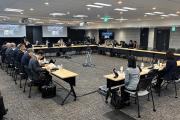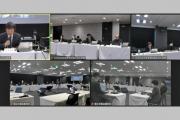Santen Pharmaceutical on January 11 started restricting shipments for its glaucoma and ocular hypertension eye drops Cosopt Mini (dorzolamide + timolol) as its main plant was damaged by the New Year’s Day earthquake in central Japan.
The ophthalmology powerhouse suffered the impact of the disaster at its Noto Plant in Ishikawa Prefecture, which accounts for as much as three-fourths of the company’s annual production volume for in-house products. Some of the factory buildings and equipment sustained damages, according to the company.
The timeline towards the product’s normal supply is unclear at this time. Other than Cosopt Mini, the drug maker has a certain amount of inventories at hand and thus expects to continue normal supplies for other products.
On the same day, Nitto Medic, an eye drug specialist headquartered in Toyama, provided a timeline for the re-supply of all un-refrigerated drugs now under shipment suspensions.
On January 9, the company had announced that it was suspending shipments for all products excluding refrigerated medicines. Subject to the shipment suspension were 69 products, predominantly eye drops. The quake crippled its automated warehouse, making it impossible to take out the stored products, it had explained.
In the latest update, Nitto Medic said it will gradually start taking orders from January 12 and resuming supplies, beginning from January 16. However, eight products would be under restricted shipments upon the re-supply, it said.











